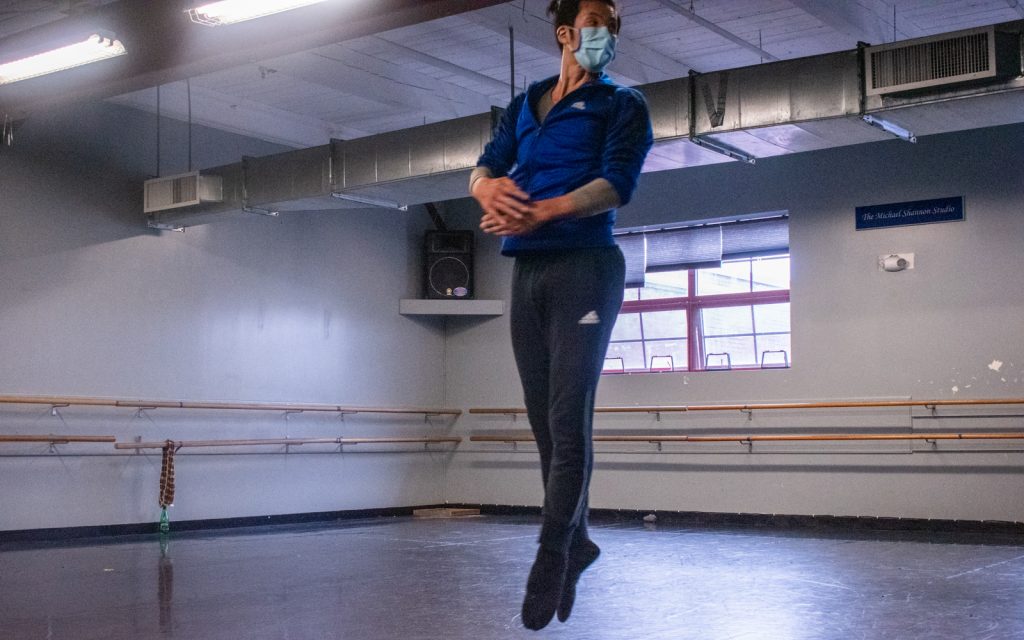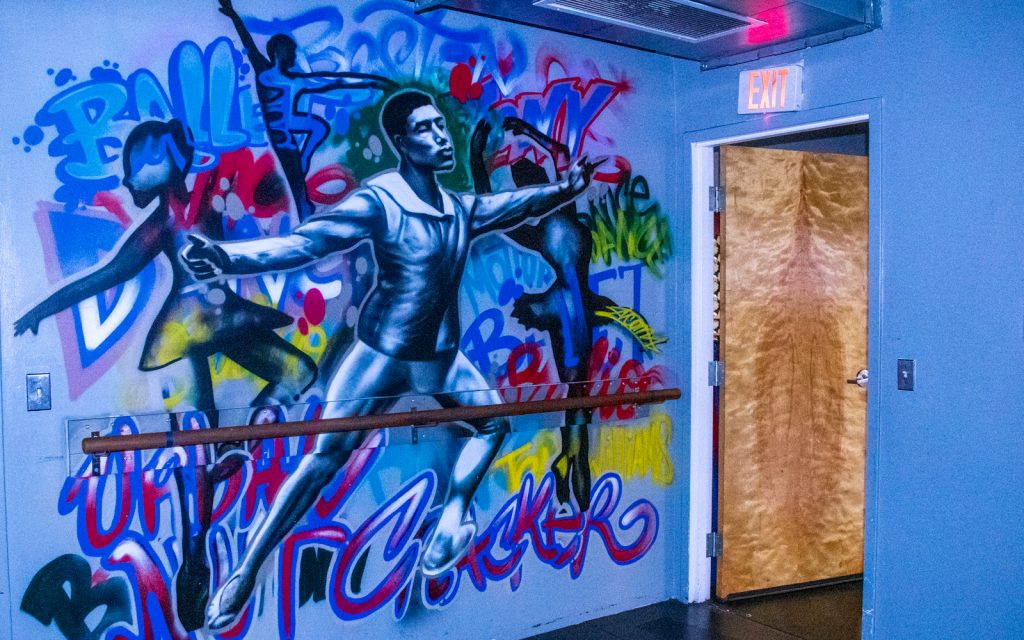By Nica Lasater and Mollie Hersh
BU News Service
In her 26 years of dancing, Angie DeWolf has performed in 24 Nutcrackers, debuting as a 12-year-old angel before eventually donning the Sugar Plum Fairy’s famous pink tutu for the José Mateo Ballet Theatre’s annual production.
As theaters remain closed during the COVID-19 pandemic, DeWolf, nearing the end of her career, is unsure if she will ever take part in the iconic ballet again.
“I might be done,” she said. “Maybe Nutcracker next year, that would be great, but I don’t know at this point. I think it has forced a lot of us to reassess our futures.”
The Nutcracker Ballet is a staple for dance companies and schools of all sizes as the Christmas classic draws massive audiences every holiday season. Boston is home to several renowned productions ranging from the traditional Boston Ballet to the unconventional Urban Nutcracker produced by Tony Williams.
However, these holiday favorites are changing this year as coronavirus cases surge in the United States.

In lieu of Boston Ballet’s typical stage production, running since 1964, the company will take the tradition to television. The hour-long show will be broadcast in partnership with NBC for free and available online for a limited time, making the ballet more accessible to a wider audience.
In addition to the classic—though shortened—show, the Boston Ballet is premiering The Gift, which features new choreography from its company members set to Duke Ellington’s Nutcracker Suite.
Gabriel Lorena, a choreographer for The Gift, had hoped that joining the Boston Ballet meant he would experience a traditional Nutcracker, something uncommon in his home country of Brazil.
“I’ve only performed in one year [of the] Nutcracker,” he said. “When I found out I was involved with an opportunity to choreograph to this jazzy Nutcracker, it made me feel very happy.”
Once a principal dancer at Boston Ballet, Tony Williams has been involved in a number of classic Nutcrackers throughout his career, including Boston Ballet’s first ever production in the 1960s.
“Part of my DNA as an artist is traditional Nutcracker, but then I thought, ‘How can I mix that with a contemporary version?’ And that’s how [Urban Nutcracker] started,” Williams said.
Premiering in 2001, this year would have marked the 20th anniversary for the reimagined production, a combination of different dance genres set against the backdrop of downtown Boston.

The celebration is postponed to 2021 and City Ballet of Boston will stream a recording of last year’s production of the Urban Nutcracker online.
“The kids really look forward to it. They’re really bummed out they can’t do the show,” Williams said. “It’s a big loss for the community.”
Losing Nutcracker season will also cost ballet companies its most valuable financial boon according to José Mateo Ballet’s managing director, Scott Fraser.
“It’s probably a million-dollar hit to the organization,” Fraser said. “It’s a season [with] lots of six-figure hits to the organization.”
While Nutcracker is the largest ticket seller, Fraser says the timeline for the return of all live performance is uncertain.
“There’s all kinds of speculation about how Americans post-COVID will be gathering and how long it will take for a population that’s been social distancing and in masks to want to go into a windowless room with several thousand people,” Fraser explained. “It’s really unclear when that part of the business will come back.”
While the dance world is in many ways suffering due to the pandemic, there are a few upsides to losing the traditional Nutcracker season.
According to DeWolf, the ballet is “grueling” for small company dancers forced to perform multiple shows a week throughout the holiday season, many of whom have been dancing in the production every year since they were young children.
Graduated from dancer to artistic director, Williams, “the guy responsible for paying the bills” now frets more over ticket sales than choreography. He says the canceled performances this year are a “huge pressure off [his] shoulders.”
While Fraser mourns the loss of interacting with about 300 families that José Mateo’s production typically attracts, to some extent he appreciates this year’s lack of Nutcracker as it “allows [him] to experience a much more peaceful fall.”
“This is the first year I have not done laundry continuously from labor day until Thanksgiving,” Fraser said.

Besides canceling performances, COVID-19 has significantly impacted how dancers work on a daily basis. Since the spring, many classes and rehearsals have been mostly virtual, with some in-person studio lessons mixed in.
Though online classes are not ideal as hands-on studio time is lost, Dewolf says there are some benefits to interacting with her students via video. In addition to being able to better see their alignment and make corrections, in-person pressures are removed for some young dancers.
“Some of the kids who I think are shyer in the studio, who are maybe more of the underdogs … they’re thriving now,” Dewolf said.
Digital platforms also offer possibilities to create beyond the confines of the stage. Lorena is using the flexibility that virtual choreographing provides to experiment with how dance is perceived, using framing and reflection to create a more cinematic experience than a ballet-goer might be used to.
Although the Nutcracker will look a little bit different this year, Lorena hopes audiences will still connect with the spirit of the show.
“I’m excited for them to know that we’re still working and being creative,” Lorena said. “And I really hope they feel like it’s a gift for them.”





